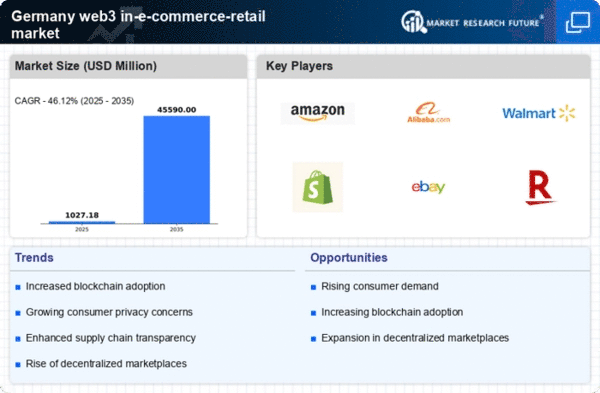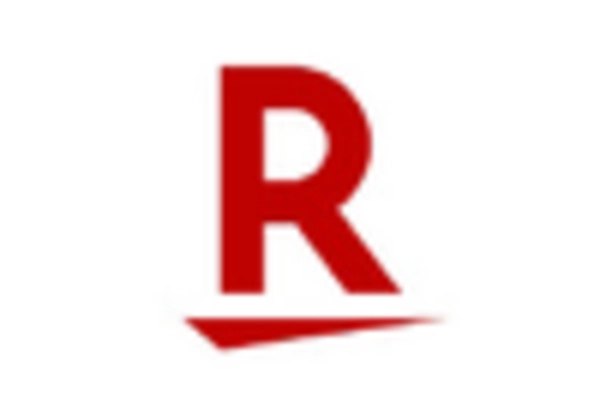Tokenization of Assets
The web3 in-e-commerce-retail market is increasingly exploring the tokenization of assets, which allows for fractional ownership and enhanced liquidity. In Germany, this trend is gaining traction as retailers look to diversify their offerings and attract a broader customer base. By tokenizing products, retailers can enable consumers to invest in high-value items, such as luxury goods or collectibles, at a fraction of the cost. This approach not only democratizes access to premium products but also creates new revenue streams for businesses. Market analysis indicates that the tokenization of assets could potentially increase sales by up to 30% in the next few years, as more consumers embrace this innovative purchasing model.
Enhanced Consumer Privacy
The web3 in-e-commerce-retail market is witnessing a growing emphasis on consumer privacy, driven by increasing concerns over data security. In Germany, consumers are becoming more aware of how their personal information is utilized by online retailers. This shift is prompting businesses to adopt decentralized technologies that prioritize user privacy. According to recent surveys, approximately 70% of German consumers express a preference for platforms that offer enhanced privacy features. As a result, retailers are likely to invest in blockchain solutions that provide transparent data handling practices, thereby fostering trust and loyalty among consumers. This trend not only aligns with consumer expectations but also positions businesses favorably in a competitive landscape where privacy is paramount.
Decentralized Supply Chain Management
The web3 in-e-commerce-retail market is experiencing a transformation in supply chain management through decentralized solutions. In Germany, retailers are increasingly adopting blockchain technology to enhance transparency and traceability in their supply chains. This shift is driven by the need for greater accountability and efficiency, particularly in the wake of rising consumer demand for ethically sourced products. By utilizing decentralized ledgers, businesses can provide real-time tracking of goods, ensuring that consumers are informed about the origins and journey of their purchases. Reports suggest that implementing decentralized supply chain solutions could reduce operational costs by up to 20%, making it an attractive proposition for retailers aiming to optimize their processes.
Smart Contracts for Automated Transactions
The web3 in-e-commerce-retail market is leveraging smart contracts to facilitate automated transactions, thereby streamlining operations. In Germany, retailers are increasingly recognizing the potential of smart contracts to reduce transaction times and eliminate intermediaries. This technology allows for self-executing agreements that automatically enforce terms and conditions, enhancing efficiency and reducing the likelihood of disputes. As a result, businesses can offer faster service to consumers, which is becoming a critical factor in customer satisfaction. Industry expert's indicate that the adoption of smart contracts could lead to a 25% reduction in transaction costs, making it a compelling option for retailers looking to enhance their competitive edge.
Community Engagement through Decentralized Platforms
The web3 in-e-commerce-retail market is fostering community engagement through decentralized platforms that empower consumers. In Germany, there is a noticeable shift towards platforms that allow users to participate in decision-making processes, such as product development and marketing strategies. This trend is indicative of a broader movement towards consumer-centric business models, where feedback and collaboration are prioritized. By leveraging decentralized governance structures, retailers can cultivate a loyal customer base that feels invested in the brand. Studies suggest that businesses that actively engage their communities can experience up to a 40% increase in customer retention rates, highlighting the potential benefits of this approach.
















